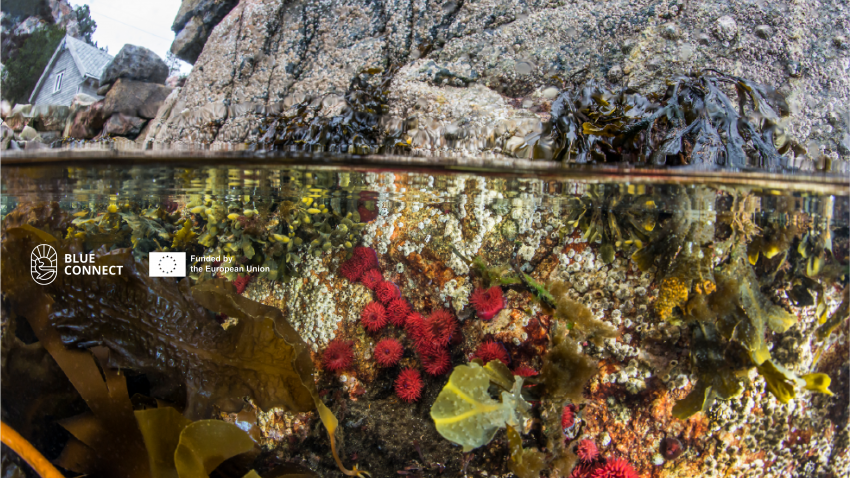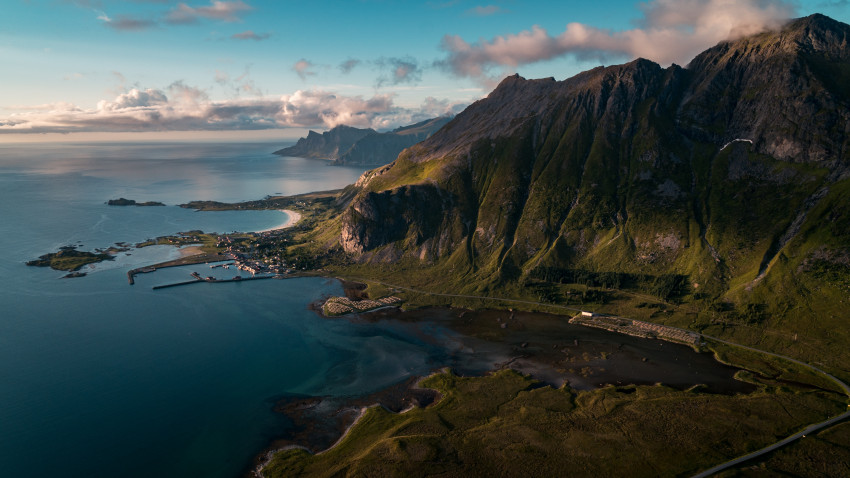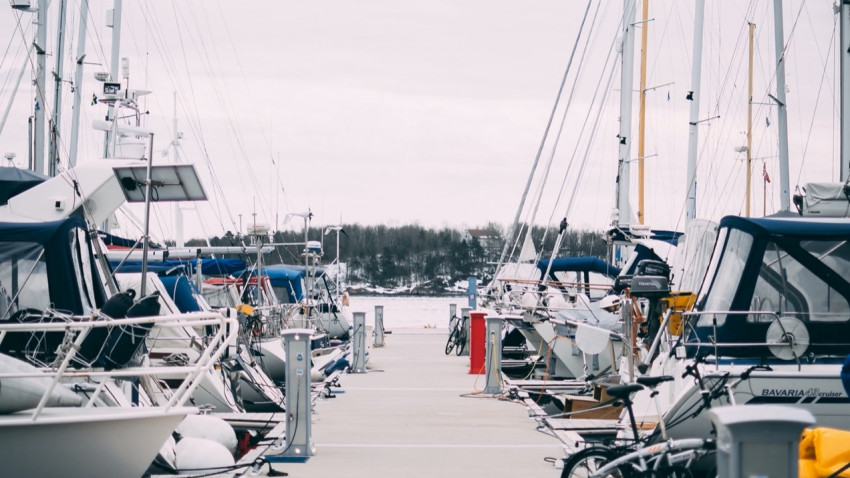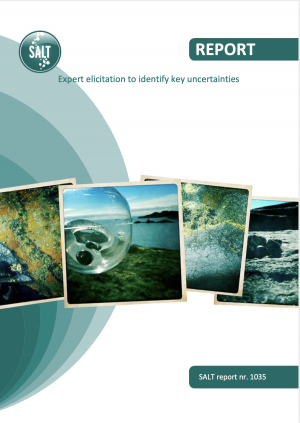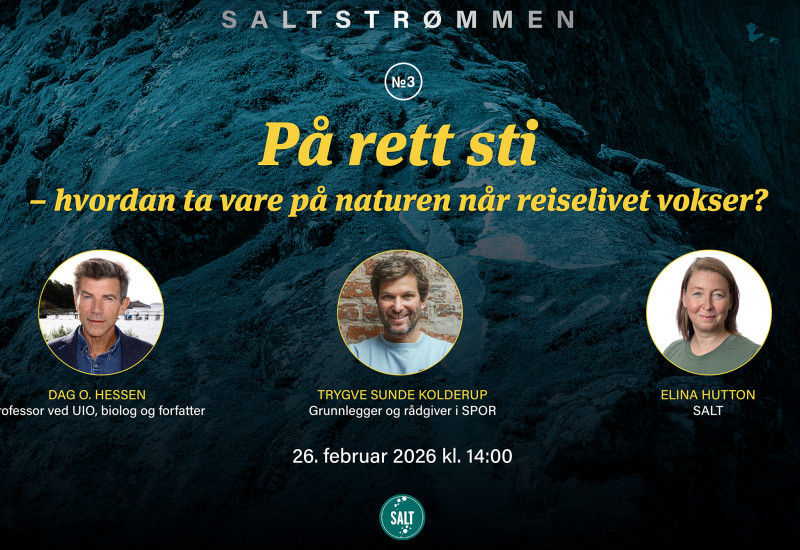Marine Management
Knowledge-based management is a prerequisite for ensuring that the marine industries of the future can continue contributing to job and value creation — on a local, national and global level.
The complexity of the coastal zone, with its rich diversity of habitats, ecosystems and species, means that sustainable management requires commitment and knowledge to ensure future growth and development. Monitoring, dialogue and regulations are also imperative tools for ensuring a sustainable future, considering the multitude of interests, stakeholders and legislation that are found in these coastal regions.
Projects
Publications
News
February 26th SALT invites you to the second webinar in our series "SALTstream – Knowledge on the Move". This time with Professor Dag O. Hessen, SPOR gründer Trygve Sunde Kolderup and our very own Elina Hutton as presenters. In the webinar "On the Right Track" we adress the growth in nature-based tourism, and asks: - How to take care of nature as tourism grow? Elinas presentation will be held in English.
Sign up for the webinar here
SALT researcher Vilma Havas is among the contributors to a brand-new academic book published by Routledge this week. The book brings together knowledge generated through the four-year research project Shiftplastics in a single volume. The project, led by Western Norway Research Institute (Vestlandsforsking), has brought together stakeholders from across the entire value chain to identify solutions for improved management of plastic from fisheries and aquaculture.
The book includes contributions from 18 researchers from SINTEF, NIVA, NTNU, Nordlandsforskning, SALT, UiT The Arctic University of Norway, and Vestlandsforsking. SALT has contributed to Chapter 10 of the book, which is aimed at both Norwegian and international audiences.
Read more about the publication here



